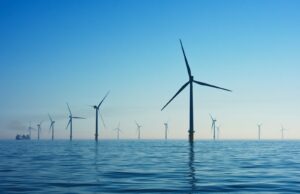A coordinated approach to off-shore energy is essential to achieve net-zero, according to a new report published today (March 8) by the Institute of Engineering and Technology.
The report, which was written by developers, consultants and professional engineering institutions aims to provide a clear understanding of how we can coordinate the national interests in offshore energy.
Based on this, the authors have outlined several key recommendations, these include:
- Introducing incentives in order to engage the full energy industry in planned coordination
- There also must be a more joined-up and holistic approach to ensure that space isn’t wasted
- It is imperative to differentiate between offshore site planning and onshore connection points, but both must be considered in a coordinated energy system that recognises the twin challenges of climate and environment
The authors of the report have highlighted that without this clear coordination, the opportunity to maximise the benefits of all existing and emerging technologies will be constrained.
Elaine Greig, member of the IET’s Energy Policy Panel and director at Renewable Consulting Group (RCG), said: ‘Seas around the UK are an important resource however the offshore energy space is very limited and under heavy demand for both use and protection.
‘The UK Government has set an ambitious target to install 40 GW of offshore wind by 2030. This will take all of the current capacity. A strategy to effectively deploy new renewable energy and grid networks, while adapting current infrastructure, both offshore and onshore is vital.
‘Beyond this target, additional capacity of renewable energy, including offshore wind, will be required to meet the ultimate goal of net-zero by 2050. It is imperative that there is a more joined-up approach – the first step being full engagement with the whole energy industry in planned coordination.
‘It is evident there is a very clear, national shared interest in the optimum use of the offshore resource which puts us in a very good position, however knowing how to get there is less studied and must now be a focus.’
Photo Credit – Pixabay
















